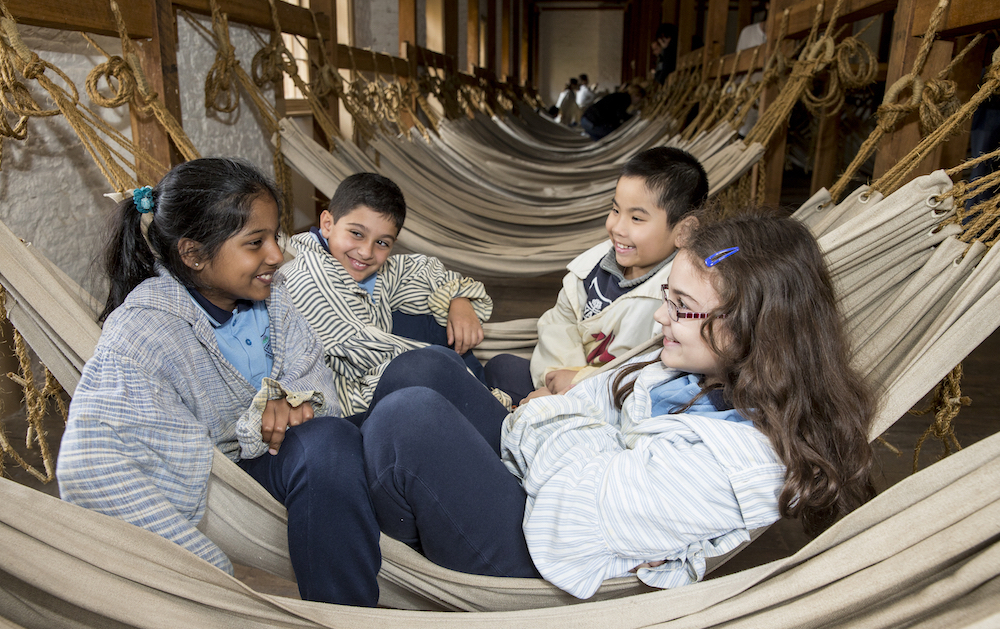Build your students an escape room
Escape rooms are interactive ways to engage students and keep them learning in the tough final weeks of Term 4.

Escape rooms hit the scene in a big way about a decade ago. Designed for groups of people to discover and solve clues under time pressure, they provide an opportunity for educators to replicate some of the most exciting and educational aspects. These days you can buy escape room kits, making the ‘room’ aspect almost irrelevant.
Read the latest print edition of School News HERE
Here is a step-by-step guide for teachers to design an escape room in your classroom linked to learning goals, with accessible props and kid-friendly clues.
Step 1. What is your objective?
Any learning subject can be the basis of an escape room, from maths and science to phys ed and art. When planning your escape room, make your learning goals measurable (but only to yourself)
Decide what skills you want students to work on: for example, a maths objectives might include logical reasoning, fractions, geometry or problem-solving. History might be specific dates or events, or cause and effect.
The intent is that students need to complete a (learning) task or display certain knowledge to progress to the next stage.
Decide if you will allow your students to get clues if they get stuck. Consider allowing them to ‘earn’ them the week prior for good work or behaviour.
Step 2. Choose a location
Locking children in classrooms is not ideal, so your escape room needs to be a more metaphorical space. If you don’t have a spare classroom, you can use a corner of the library or undercover area. You could even set up an escape room in the middle of the oval or in the playground. Physical boundaries can be created using pin-up boards or whiteboards, or even a clue that is located under a table or desk.
Step 3. Create a theme and narrative
Your theme is vital because it needs to captivate your students as well as be linked to learning content. Your theme will help you choose props and story elements.
Are your students detectives and discovering clues to solve a crime or are they unlocking ancient riddles in a treasure hunt? Are they solving maths or science-based puzzles to prevent an explosion, or are they observing clues in artworks to determine which is the fake?
Once you have determined your theme, it is easier to design a storyline to immerse students in the experience. The scenario needs to start with a problem that needs to be solved (discover the fake artwork, follow the map to find the treasure, solve the equations to unlock the safe) and have a consequence if they do not finish in time (a bomb goes off, the thief escapes, the principal walks in).

Step 4. Create your puzzles and challenges
Because you’re designing the escape room for kids, the clues should follow a relatively obvious progression and the first clue should be very clear. It might be a note that is handed to the students saying ‘A thief has stolen an artwork and replaced it with a fake, you need the code to unlock the gallery’ or ‘There is a treasure map hidden in one of these chests.’
Depending on the age and skill level of the students and the time you are allowing them, you can have as many or as few clues as you want – but they should always lead from one to the next.
Types of clues and puzzles to use
Word puzzles: Crosswords, word searches, or anagrams. Hide a mirror in the room for a clue that must be read backwards. Have a wall of random words that must be used to answer the crossword or word search. Leftover words can be rearranged to make a sentence.
Math problems: Equations, logic puzzles, or number sequences. Answers or missing numbers might be the code for a lock.
Physical tasks: Hidden objects, jigsaw puzzles, or matching activities. Write numbers or letters on the back of puzzle pieces, which, when assembled, make another clue. Hide a map on the wall, a ‘newspaper’ in the rubbish bin, or a keyboard with missing or marked letters.
Ciphers or codes: Simple substitution ciphers or riddles where the answer will lead you to an item that conceals a clue, for example: What gets wetter and wetter the more it dries? A towel.
Combination locks: Use number or word codes to “unlock” clues. Bike locks, small cashboxes, briefcases, filing cabinets and combination locks are great for this.
The best puzzles are where they are integrated with your subject:
- History: Rearrange timeline events to reveal a code.
- Science: Solve a periodic table riddle to find the missing element.
- Literature: Match quotes to characters to unlock the next clue.
- Art: paint drops on the floor or wall is morse code.
- Computer Science: create a QR code that links to an online clue or image.
- Teamwork: give different groups different parts of the same clue/puzzle so they need to share and communicate to solve.
- Maths: use weights and have numbers or letters on the weights that spell out a word when arranged in the correct order.
Step 5. Reflect on learning
After your students have completed the escape room, allows them to discuss the clues and puzzles to reinforce learning.







